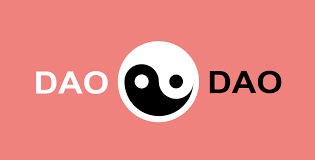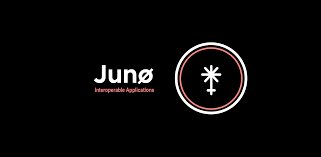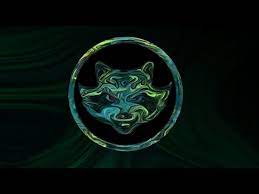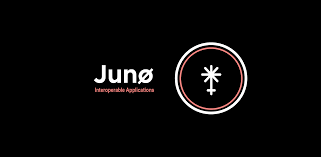DAO DAO Overview
Overview of the Juno DAO DAO

Disclaimer - This is part of our outside perspective series. Curious Cosmonaut Research is not the author we are simply highlighting some good threads and perspectives on the Cosmos ecosystem with their permission. We also, therefore, do not guarantee their accuracy.
.
Author: DAO DAO Team
Source: Docs
Date: 1/5/2023
Welcome to DAO DAO
DAO DAO is a DAO that builds DAOs. We build powerful, open source, DAO tooling.
Why DAOs?
DAOs are programmable organizations with easily inspectible states. DAOs can help govern everything from an Internet community of dogs to the development funds of entire blockchains.
Because DAO DAO DAOs operate on a blockchain, they are transparent by default. This means that votes, the voting power of members, and actions a DAO takes are all publicly auditable. This can help provide trust that DAO members are being good stewards of their communities.
The programmability of DAOs makes them extremely flexible. DAO DAO is designed as a set of composable components that can snap together like Lego blocks. Communities can pick and choose pre-built governance components to build a system that works well for them, or they can program their own.
Any kind of institution can be represented as a DAO. You can launch a business or an investment group, found a school, or create a popular assembly for your local community. Our hope is to build a platform where the challenges of community formation are social, not bureaucratic.
Why DAO DAO?
DAO DAO helps you build and operate DAOs with a visual interface. Usability and accessibility are a priorty. Technical and non-technical communities alike have a space here.
DAOs on DAO DAO do everything from helping run blockchains and decentralized exchanges to building communities of people who like dogs.
DAO DAO DAOs are IBC enabled. This means that your DAO on Juno can manage protocols and hold assets on any IBC enabled chain.
Where do I begin?
If you want to get started building a DAO, check out our Quickstart guide.
If you want to understand more about IBC, DAOs, and how all of these pieces fit together, see What does DAO DAO do?
What's a DAO?
Decentralized autonomous organizations (DAOs) are collectively owned governance systems whose governing software is cryptographically bound to obey the democratic wishes of members.
Proposals
At its simplest, a DAO is an organization where you can vote on proposals. Proposals are written to an immutable, public ledger (blockchain) - their text, whether they passed or failed, and who voted on them. Proposals can be natural language rules or laws (for example, you could run a legislature with them), or they can be software.
When a proposal passes the DAO's voting period, that proposal becomes canonical. It will be as "passed" in the ledger, and any proposal messages (effectively, bits of code) will be executed on the chain, modifying the DAO's state.
INFO
For example, this proposal in RAW DAO (which governs the Junoswap DEX) has proposal messages associated with it. These messages will only be executed if the proposal passes and they will change the unbonding period for LPs on Junoswap automatically.
The DAO's governance can itself be modified by governance proposals. For example, the voting rules of the DAO themselves (e.g., how long voting periods last, what proportion of people need to vote on something for it to pass, etc) can be modified by governance proposals.
CHANGING THE RULES BY WHICH RULES ARE MADE
You can think of DAOs as a big game of Nomic. For example, this proposal in Dog Dao updates the DAOs voting rules to make the voting duration shorter and, thus, make proposals complete more quickly.
Governance tokens
Some (not all!) DAOs manage voting through governance tokens. Like shares in a corporation, governance token determines your voting power. A person with 80% of a DAO's tokens will be able to pass things autocratically. Distributing tokens evenly will give everyone an even vote, assuming no one trades their tokens.
TOKENS ARE PROGRAMMABLE.
You can prevent transfer, vest (i.e. slowly unlock) tokens over time, and more.
Non-token based DAOs
Most DAOs do not need a token. Those DAOs may use fixed voting weights to determine voting power. For example, the DAO DAO Development Fund assigns fixed weights to members. These types of DAOs are often referred to a "multisigs".
Tokens can be useful when you want very fluid governance with many members. They also introduce complexity because if your governance token becomes liquid your DAO will loose control of what members it has. Non-token based DAOs add and remove members via vote so they don't have this problem.
Additionally, launching a token with a DAO may invite speculators who will "invest" in your DAO. This may bring expectations and scrutiny as others could expect your team to spend time increasing the value of your governance token. For some DAOs, this is desirable, but many DAOs may want to focus on building out their product and revenue streams.
The current state of DAOs and the blockchain ecosystem is very token governance heavy. We enchorage you to think deeply about if that is the system that actually works best for you when creating a DAO for your community. In many cases, a member based DAO may be a better option. You can always migrate to a token based DAO later.


